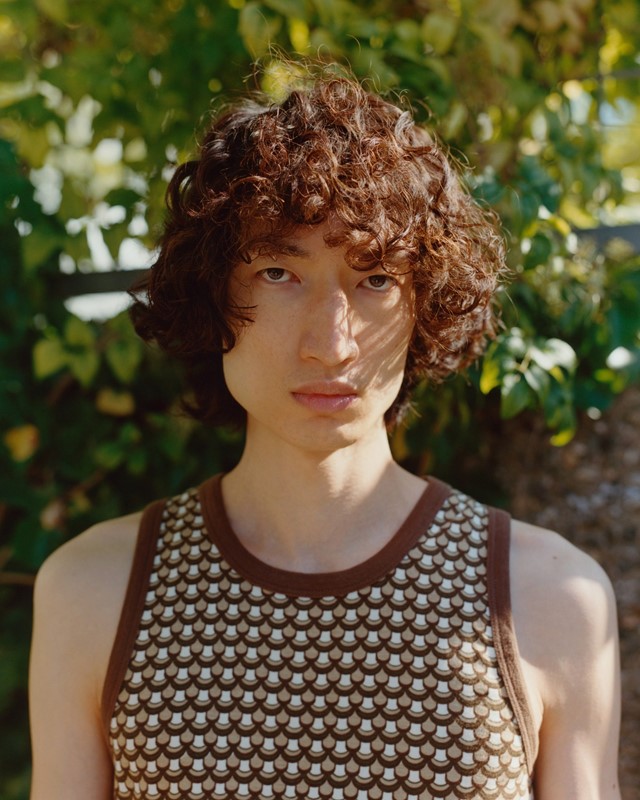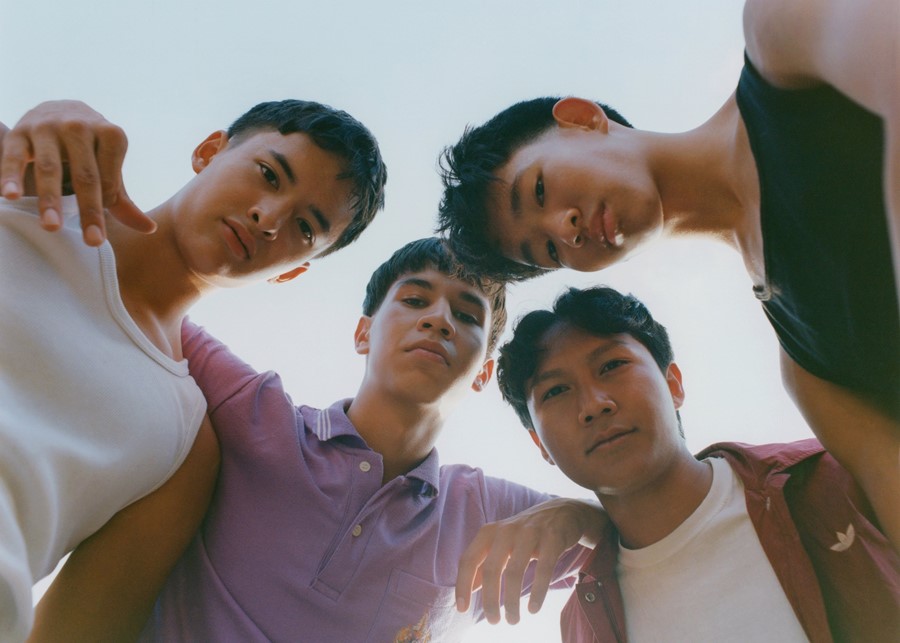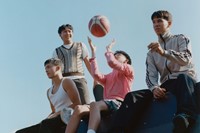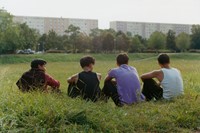In Prissilya Junewin’s new photo series and film for Nowness, the photographer lovingly explores the complexities of identity, community and relationships
In Prissilya Junewin’s new photo series and short film, As Far and Close As Here, fragments of everyday life are captured through a constellation of subjects: friends, siblings, lovers and loners. Models lie effervescent on finespun beds of grass, set against a powdery blue sky and sailing down skate ramps. Through Junewin’s gossamer lens, the series is at first glance a dreamy, tender recounting of adolescence. But linger over the still and moving images, directed by Ale Ruiz-Zorrilla and DOP Tobias Blickle, and a poignant and deeply personal narrative unfolds.
Raised under a cornucopia of cultures, the photographer describes her upbringing as a beautiful but complex experience that guided the project’s DNA. “I’ve always wanted to work on a project on the East and South-east Asian diaspora because I’m Indonesian born, but my parents are Chinese and I came to Germany when I was three years old,” she says.
Growing up in a small German town, Junewin constantly struggled with a sense of isolation. “I didn’t see any other Asian people for the longest period of my life, besides my sister and my parents,” she explains, adding, “I struggled a lot in my youth with lacking a community of people who I could talk to.”

Over two years, Junewin began to develop that idea, looking to defining aspects that shaped her nascent sense of identity and community – her relationship with her sister, liminal teenage years, and romantic relationships – for reference. “From there, we created a storyboard. Throughout everything, being subtle was really important to me. This is such a complex topic, and I think that’s also what we wanted to embrace. It’s really hard to explain yourself, to tell people who you are,” she says.
While the project is founded on a personal story, the themes of burgeoning youth, navigating identity, searching for a sense of togetherness are universal. “I was quite clear that I wanted to have street cast people. Real people with real stories,” recalls Junewin, who chose models whose identities aligned with the people she aimed to portray. “A lot of my decisions were based on intuition! It was really like, ‘I have the feeling that they’re the right person,’” she laughed.
In her hands, the threads that bind oneself to loved ones are gently unspooled. In a sublime set of images, a couple is locked in a pas de deux. The dance begins adagio: standing shoulder-to-shoulder, hands interlocked, heads pirouetted to face sunshine spilling through a gate. In another, they share a stage but stand on opposite ends, soloists. Turning away from each other, one is enrobed in shadow while the other is illuminated in light. “We cast a couple because you can be together in a good and bad way. It can make you feel seen, but also very alone at the same time, especially if we’re talking about cultural backgrounds and ambiguity,” Junewin explains.
The film’s tactile tones, recording soft-spoken dialogue and frenzied movement, add a nuanced layer of storytelling to the images. Close in on a group of seemingly tough teenage boys – firmly friends in real life, the photographer asserts – and watch as they sit at the skatepark and murmur, in gentle German, about their favourite flavour of Samyang buldak ramen. Cut to the next frame, and a man listlessly sprints, face contorted, in search of the unknown. “For me, the idea of movement was about always being on your journey to search for something,” says Junewin. “For community, for friends, for identity.”






